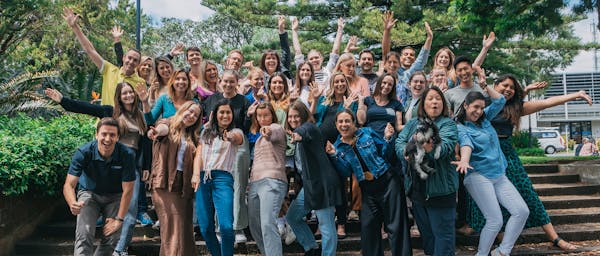I have met many people through this program and that was one of best experiences, learning about their cultures and getting to know them as a person. It was also fulfilling to work with others towards a good cause.

Teaching project in South Korea - Seoul
Purpose
Start dates
Duration
Volunteer hours
Age
Accommodation
Who is going?
Group video calls
Once you have secured your place, join regular video calls to meet your Program Manager and other volunteers before your trip.
This program is ideal for:
Energetic volunteers who are passionate about education and want to help children learn English. You’ll have the support of the local team and local teachers so no teaching experience is required, but relevant training like a TEFL certificate would be useful.
Project details
Are you passionate about educating young children? Ever dreamed of doing it in the exciting city of Seoul, South Korea? This is your chance to become a teaching volunteer in South Korea with International Volunteer HQ. This project enables volunteers to gain experience working with children in Seoul who due to lack of government assistance don’t get access to English teachers.
The center is run by a non-profit organization in the Guro district of Seoul. They offer after-school classes and care for children from disadvantaged backgrounds. The center is dedicated to educating both Korean and foreign children in Korea ensuring a welcoming and inclusive environment for all.
What to expect and how you'll make an impact
Knowing how to speak English is a valuable skill in South Korea and opens up a whole realm of possibilities for employment. Most schools provide their students with excellent education in the English language, however unfortunately in the Guro district of Seoul where the majority of the population are factory workers from other countries, their children aren’t provided with the same access to learning English. The center operates to cater for these children to ensure these barriers and hurdles to receive the same education are removed.
Volunteers will be placed at this after-school center and work closely with teaching staff to provide these children with a chance to learn English and be well cared for while their parents are at work.
Tasks involved in the Teaching project vary day to day and may include:
- Lesson planning
- Teaching small groups/tutoring
- Cultural exchange
- Educational Play such as songs and dancing
You can expect to be teaching children 7-12 years of age and your volunteer hours will be approximately 10-4pm (including a 1 hour lunch break and commute time), Monday to Friday.
There will be no volunteer work during the new Lunar New Year Holidays on February 16th, 17th, and 18th, 2026. The accommodation and all other services of the program will still be available and volunteers will be free to relax or explore the local area.
Why do Teaching volunteering in South Korea with IVHQ?
As a volunteer English teacher in South Korea you’ll be adding value to the local community while, also developing personally and professionally by:
- Making English lessons more accessible
- Developing your communication skills
- Gain an understanding in the multicultural educational policies in Seoul
- Gaining teaching experience
- Immersing yourself in Korean culture
- Exploring South Korea’s ancient history
Volunteer requirements
Volunteers need to be 16 or 17 years or over to participate on this project, unless volunteering with a parent or guardian, in which case the minimum age is 3.
Volunteers aged 16 or 17 on their start date, if unable to obtain a criminal background check, can provide two character reference letters instead, provide IVHQ with parental consent in order to participate on the program, and may be asked to provide additional document to the local team.
To respect the local culture and customs in South Korea, volunteers should be aware that they’re unable to have anything obstructing their face while at their volunteer placement.
Volunteers aged over 18 on their start date are required to provide a criminal background check to IVHQ before departure.
All volunteers must speak English and have adequate volunteer travel insurance.
Are you eligible to volunteer?
Submit a free application so we can confirm your eligibility and check availability for your preferred dates.
Not sure which program to join?
Get personalized recommendations >
Who is going?
Group video calls
Once you have secured your place, join regular video calls to meet your Program Manager and other volunteers before your trip.
South Korea photo gallery





























































































Academic course credit
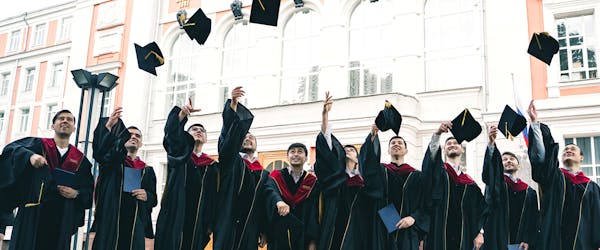
Academic course credit
Gain course credit from your college or university and meet your academic requirements when completing a volunteer abroad program with International Volunteer HQ!
Learn about course creditRecommended online TEFL course

Recommended online TEFL course
We encourage volunteers on IVHQ’s Teaching and Childcare projects to come prepared by completing some relevant training, such as a Teaching English as a Foreign Language (TEFL) course. Although formal teaching qualifications are not required on these projects as volunteers are supported by local staff, taking a TEFL course enables you to gain more from the experience. Visit our Online TEFL Course page to learn how to gain an internationally recognized TEFL certification at a discounted rate.
Get TEFL certified onlineLocation

Location
Discover the Land of the Morning Sun
Located in the capital of South Korea, Seoul is a melting pot of rich culture, high-technology, and exquisite cuisine. During their free time volunteers can visit Gyeongbokgung Palace, Namsan Tower, the UNESCO Heritage site of Changdeokgung Palace and Huwon (Secret Garden), or the bustling Myeongdong shopping district.
Beyond Seoul, volunteers can visit Jeju Island, explore Busan, or Gyeongju (known as the “Museum Without Walls”). Try their hand at adventure sports or experience a Buddhist temple-stay and immerse in centuries old culture and religion in the country.
Fun Fact: South Korea has one of the fastest internet connection in the world. You never have to worry about connectivity when you’re traveling in the country.
Arrival and orientation
The program orientation begins every Monday, and volunteers need to arrive in Seoul on the Sunday before program orientation.
After registering for the program, please book your flights to the Incheon International Airport (ICN) in Seoul on the Sunday before your program orientation. Your airport train ride to the accommodation is included in your program fee. Please note that this service is offered between 10:00 AM to 5:00 PM.
When you arrive, you will be greeted at the airport by a member of the local team. The airport is a 1-hour train ride from the accommodation. If there are volunteers arriving within a few hours of your flight, the local team will wait and transfer volunteers to the accommodation altogether. Your program fee covers your accommodation and includes the night before your program orientation.
If you are traveling to South Korea before your volunteer program, we can arrange for you to be picked up at a pre-arranged destination in Seoul, the day before your program orientation. You also have the option to make your own way to Seoul.
Orientation is hosted by the South Korean local team. There are two options for the orientation of the South Korea program:
1-day Orientation:
Orientation begins on your selected start date and covers everything you need to know about your volunteer program. You will have an introduction to the South Korea Program and the local staff, along with basics around South Korean customs, rules, expectations, and safety.
This will be followed by a tour of the local area to show volunteers key spots like supermarkets, ATMs, and currency exchange centers. The local team can also assist in obtaining a local SIM card with data (LG U+).
Afterward, you will join a project-specific meeting as part of the project preparation you’ll need to complete for the following day.
5-day Culture Week:
The Culture Week begins on the morning of your chosen start date and runs for the first five days of your stay. It is an excellent way to kickstart your volunteer abroad experience, and it covers everything you need to know for your volunteer program in South Korea.
Plus, you’ll learn more about the culture and tick off some must-do South Korean experiences, including calligraphy lessons, carving an authentic Korean stamp, visit to the COEX mall and Jogyesa temple, a Korean cooking class, and more! The Culture Week will allow you to meet other volunteers and swap contact details for weekend travel and socializing.
If you wish to join the Culture Week, you can add this to your itinerary via the ‘add on and tours’ section of your pre-departure checklist once you have submitted your application
Volunteer schedule example
Weekdays
Start times and daily workload depends on the project that you are volunteering on, with some beginning in the morning and some in the afternoon. A typical schedule is as follows:
| 7:30 AM - 9:30 AM | Breakfast at the accommodation. |
| 10:00 AM | Travel to placement to join local placement staff and begin work on your project. |
| 12:00 PM | Lunch. Volunteers either eat lunch at the volunteer accommodation or, in some cases, at their placement (either a packed lunch or at a nearby restaurant). |
| 1:00 PM | Afternoon placement work begins. |
| 4:00 PM | Afternoon placements usually end. Volunteers are free to return to the volunteer accommodation, plan for the following day’s activities or use their free time as they wish. |
Please note that the schedule may occasionally change due to weather, public or school holidays, or other unforeseen events that could affect your placement. We recommend checking in advance whether your intended travel dates coincide with any public or school holidays.
Weekends
Volunteers have the weekends free and there is no shortage of things to do in Seoul or around South Korea.
For volunteers who prefer tranquility, various Buddhist cultural experiences and meditation are available at the accommodation. Conversations with monks are also possible.
For more active volunteers, Hongdae, South Korea’s top youth street, is just a 10-minute walk away, where you can enjoy cafes and a youthful atmosphere. To visit other places like Gangnam, the subway from the accommodation can take you anywhere.
Volunteers can make travel arrangements once in South Korea, with the advice and guidance of the local team.
Accommodation and WiFi
You’ll be staying in a temple, located in the heart of Seoul, the trendiest and most vibrant area Hong-Dae.
Living conditions are comfortable with air conditioning for the hotter months and heat for the cooler months. Volunteers can expect to share a dormitory-style room with up to five other volunteers. These bedrooms are separated by gender with shared hot water showers and western toilets (also separated by gender). There is a lounge area, as well as a dining area for volunteers to hang out and enjoy their meals together.
The accommodation allows volunteers to access the famous ‘tea bar’ for complimentary tea from 9am to 10pm. Meditation sessions are also held every morning in the beautiful zen hall which volunteers are welcome to join.
There is WiFi available at the volunteer accommodation, so volunteers can easily stay in touch with family and friends at home.
Private room upgrades to a single room is also possible for an additional cost. These are subject to availability and once you have registered you will be able to request an upgrade. These are located within the temple on the same floor as the dorm rooms.
For groups, couples, families who wish to book a private room upgrade, also have this option but it will be at a nearby hotel as the temple private rooms are single beds only.
Please note that the accommodation is within a temple and therefore volunteers are expected to be quiet after 10PM. It is important to note that volunteers are unable to consume alcohol or meat at the guesthouse.
If you wish to arrive earlier than your recommended arrival date or spend extra nights after your program, we can arrange additional nights of accommodation for you at an additional cost. You can book extra nights via your profile after registration, subject to availability.
Meals
Volunteers are served a mixture of South Korean and western dishes, with a ovo-vegetarian base. Volunteers will have the opportunity to experience rich and varied Korean cuisine, celebrated for its emphasis on balance, health, and seasonality. Korean meals are typically based around rice and are accompanied by a variety of side dishes predominantly made from vegetables.
Breakfast at the temple includes traditional temple food, focusing on simplicity and vegan ingredients, with options for Western-style breakfasts such as cereal and toast also available. This meal is typically accompanied by tea, coffee, and fresh fruit.
Lunch will typically be dishes that will consist of a mix of:
- Kimchi (fermented vegetables, usually cabbage, which is a staple in every meal)
- Bibimbap (a mixed rice dish with assorted vegetables, often topped with a fried egg and seasoned with spicy gochujang sauce)
- Doenjang jjigae (a hearty stew made with fermented soybean paste, tofu, and vegetables)
- Bulgogi (thinly sliced beef, marinated in a sweet and savory sauce, then grilled or stir-fried)
- Japchae (sweet potato noodles stir-fried with a mix of vegetables and sometimes meat)
- Western option typically includes bagels
Purified drinking water is also available in the accommodation; we do not recommend that you drink the tap water.
Volunteers are provided with breakfast and lunch daily. If volunteers wish to eat out for dinner, there are some local restaurants to suit different tastes and budgets. Tuesday to Thursday evenings, volunteers can visit Gwangjang Market, a renowned market known for its wide array of traditional Korean street food. This provides an excellent cultural and culinary experience, sampling foods like mung bean pancakes (bindaetteok), spicy rice cakes (tteokbokki), and stuffed squid.
If you have special dietary requirements, please let us know when you apply so that we can make arrangements for you. However, it’s essential to prepare for some flexibility due to the possible limits of resources at this location. We will do our best to see that you are well taken care of.

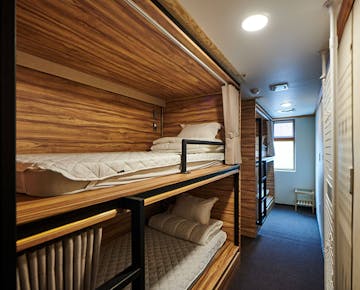

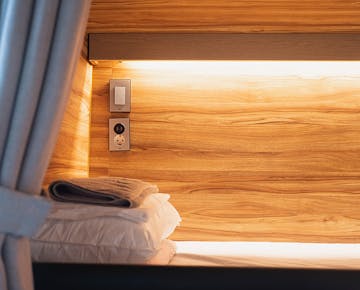



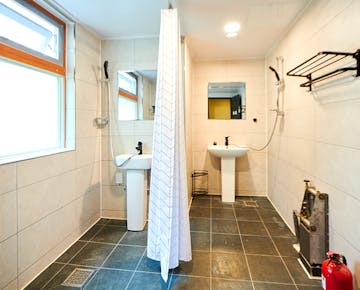

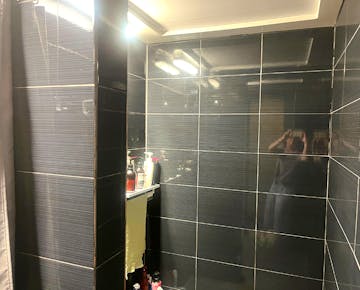
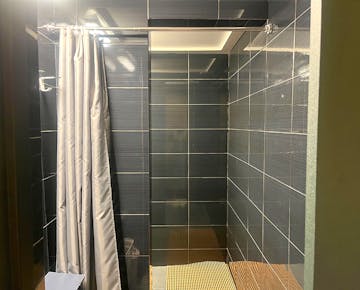

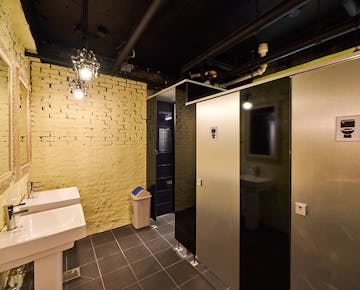

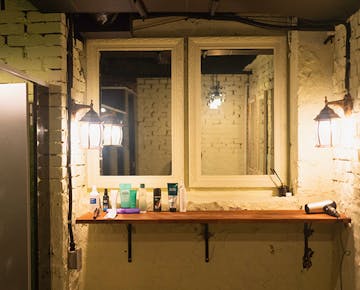






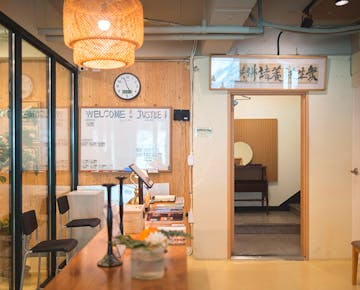
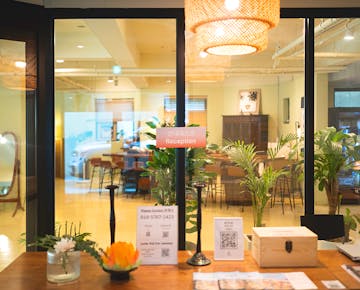












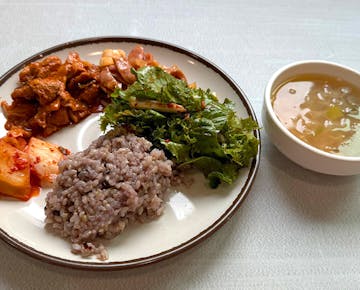
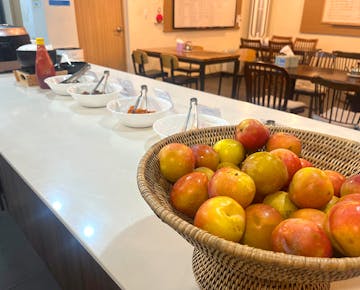
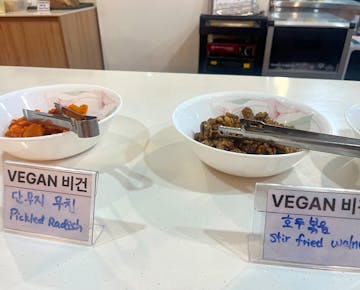
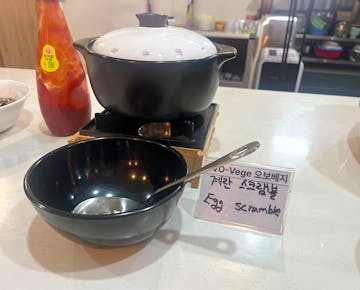


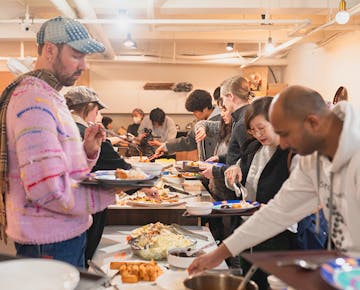
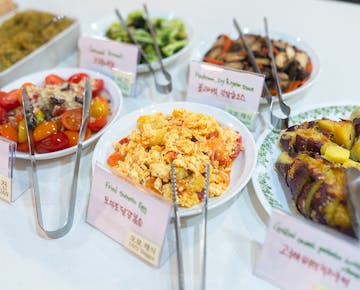





Pricing
Spots are limited. For a Registration Fee of just US$329 (approximately £252) you secure your spot and unlock all our preparation and training tools.
You don't need to worry about paying your Program Fee until you get closer to your start date.
|
Duration
|
Program Fee
Due 30 days before you start, or within 48 hours if you register inside of 30 days. Covers the cost of hosting you.
|
|---|---|
| 1 week | $667 Equivalent to $95/day |
| 2 weeks | $1,244 Equivalent to $89/day |
| 3 weeks | $1,821 Equivalent to $87/day |
| 4 weeks | $2,398 Equivalent to $86/day |
| 5 weeks | $2,974 Equivalent to $85/day |
| 6 weeks | $3,551 Equivalent to $85/day |
| 8 weeks | $4,705 Equivalent to $84/day |
| 10 weeks | $5,859 Equivalent to $84/day |
| 12 weeks | $7,013 Equivalent to $83/day |
- All programs attract a Registration Fee of US$329 (approximately £252) in addition to the Program Fee. This covers all pre-departure support services.
- A 5% international banking fee is added at point of payment.
- Breakfast and Lunch
- Airport Pick-up
- Accommodation
- 24/7 in-country emergency support
- In-country program orientation
- Pre-departure support from your Program Manager
- Personalised preparation tools, guides and check lists
- Access to IVHQ’s preferred insurance and flights partners
- Comprehensive in-country day to day support and guidance
- Discounts on travel and tour add-ons
- Certificate of International Volunteer Service
Learn more about what's included in your IVHQ Registration Fee and Program Fee.
- Dinner
- Return to the airport when your program finishes
- Transport to and from your volunteer placement each day
- Flights
- Visa (if required), travel insurance (mandatory), vaccinations, criminal background check.
- Personal spending money for snacks, laundry, public transportation, drinks and leisure activities during your free time.
Popular add-ons & experiences in South Korea
Take your volunteer experience to the next level with these popular add-ons and experiences. Explore your options below and learn how to book them once you've been accepted onto the IVHQ South Korea program.
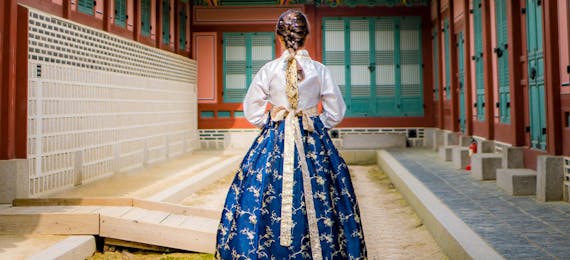
Learn more about South Korean culture and tick off some must-do Seoul experiences

Delight in the serene beauty of mountain temples, savor the delectable flavours of local cuisine, and embark on breathtaking adventures in a country that seamlessly blends old-world charm with modern innovation. Get ready to experience South Korea on this exciting group tour!

Experience the best of South Korea on our epic 10-day group tour! Explore serene mountain temples, the iconic Gyeongbokgung Palace, and vibrant Seoul. Dive into local life at a Hanok village, feast at Gwangjang Market, and soak up the energy of K-pop culture. This is the ultimate South Korea group travel adventure.
Check what's required to visit South Korea
Entry requirements can change at any time, so it's important you monitor this right up until you depart for your trip.
Safety and support
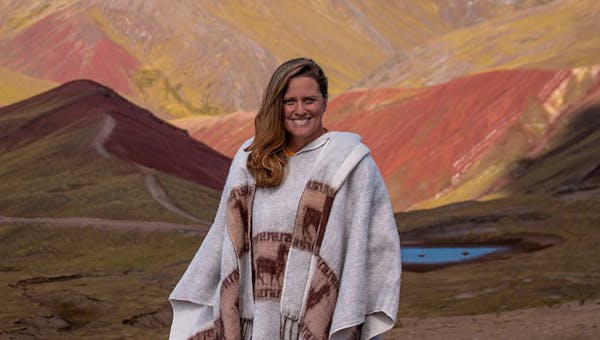
Safety and support
IVHQ follows best practice and industry-leading health and safety procedures, which are regularly reviewed and optimized as part of the B Corporation recertification.
- All volunteers encouraged to complete our interactive pre-departure training.
- All local teams trained on best practice volunteer management & First Aid.
- All IVHQ programs are required to adhere to IVHQ's Risk Management Policy.
- All volunteers have access to 24/7 in-country support from our local team.
Essential country information
Essential country information
| Capital | Seoul |
| Population | 9.78 million |
| Languages | Korean, English and Mandarin |
| Currency | South Korean won (SKW) |
| Time zone | UTC+09:00 |
Weather and climate
Seoul is located in the northwest of South Korea, a short distance from the coast of the Yellow Sea, which has a continental climate. This means Seoul has a hot and humid climate during the summer season, with cold and dry weather during the winter season. Spring and autumn are mild and short in duration. The average annual temperature is 12.8°C. The coldest month is January with -1.9°C, the hottest month is August with 26.1°C, and the annual temperature difference is very large with 28.0°C.
What recent volunteers said about their IVHQ experience
I feel like as a first-time volunteer for me it was perfect everything is well organized and the balance between volunteering and visiting yourself is well managed which allows to do other things on your own. The work isn't too hard and you are allowed to take some breaks.
I’ve gained a lot of knowledge and opened my mind to new experiences. My advice is go without expectations.
I’ve gained a lot of new memories as well as new experiences. For people who are hesitant about joining this program, I would say YOLO
To read all reviews, visit our reviews page.







